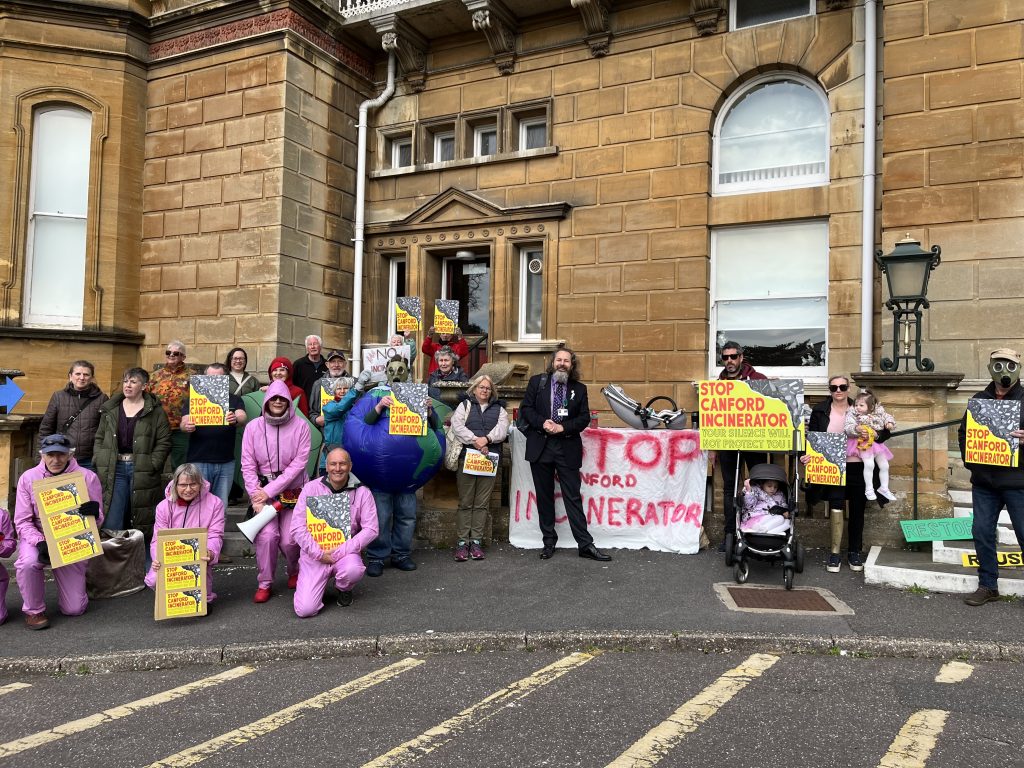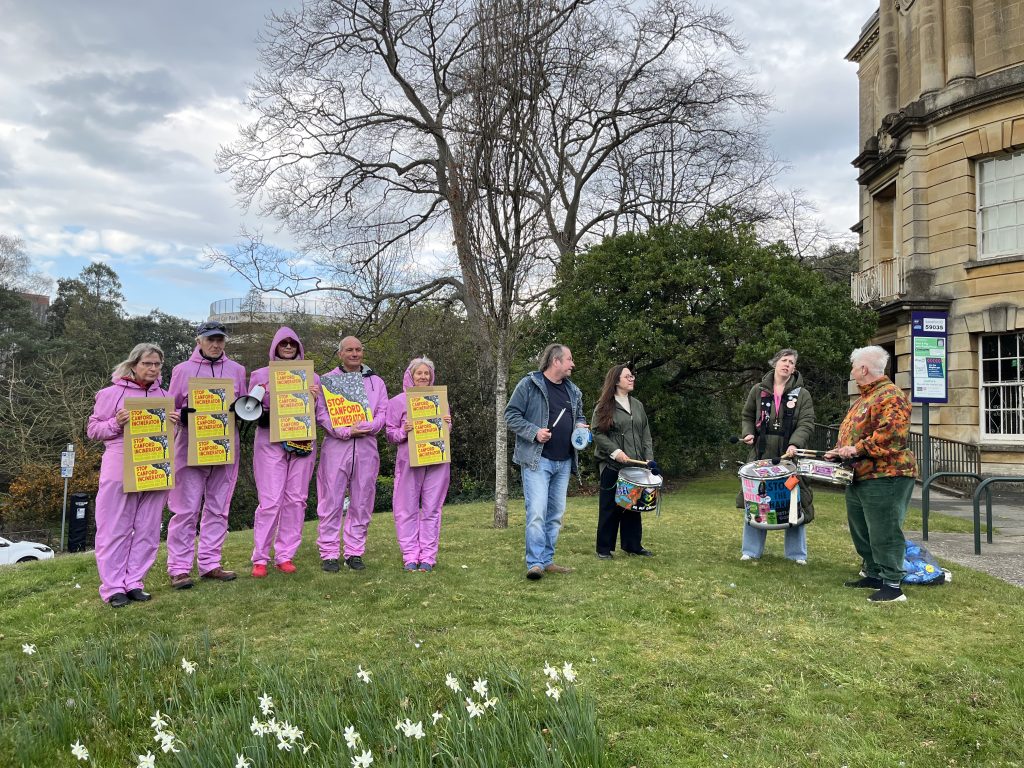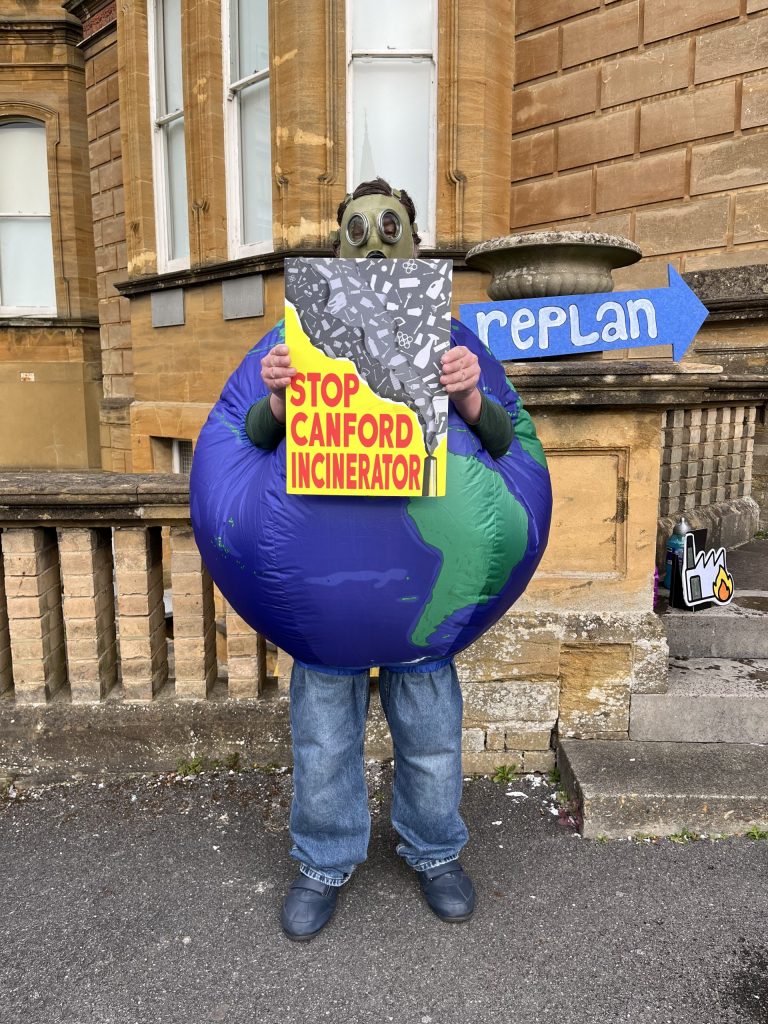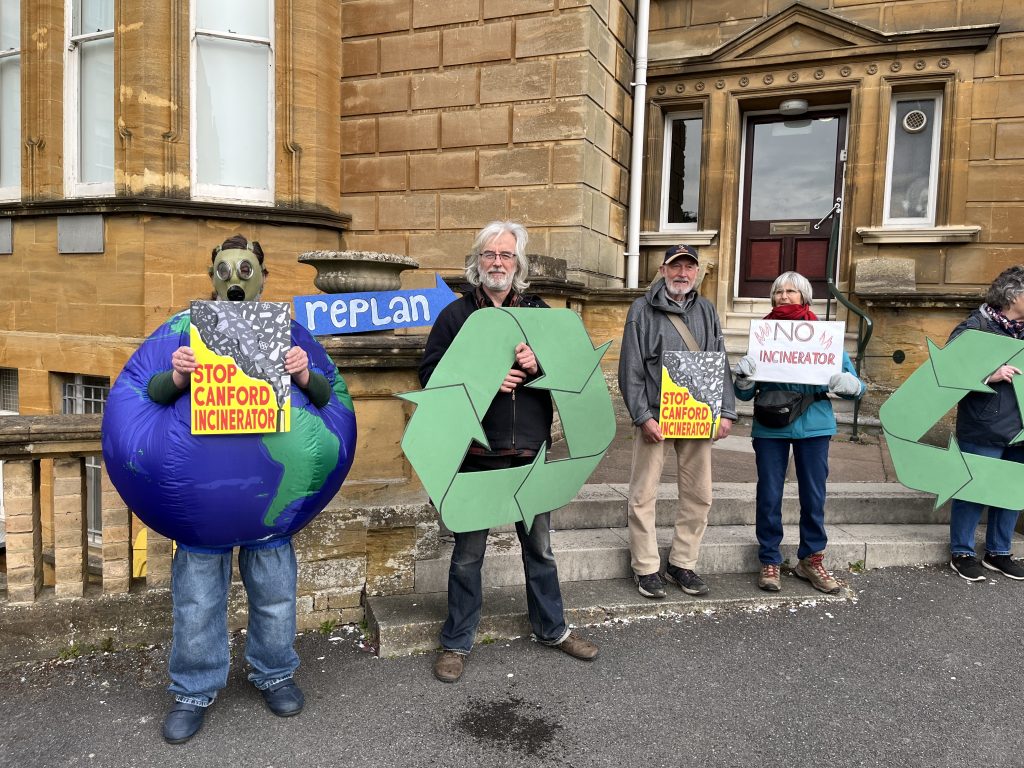Environmental groups, local organisations and concerned residents demonstrated today, Thursday, 3rd April, outside Bournemouth’s Civic Centre, where the Planning Committee was meeting, to oppose the granting of planning permission for a waste incinerator in Canford. The demonstrators held placards, signs, and banners that showed their opposition to the incinerator. There were also drummers and singing.
They expressed their opposition to this scheme while conveying their commitment to protecting local public health, the climate, and the environment. This was their biggest and noisiest protest so far, matching the growing opposition to the proposed incinerator.

Natalie Clarke, a mother and local resident, said that incinerators are disastrous for human health and the environment and that there are much better and healthier ways of dealing with waste. Incinerators are now our most environmentally damaging way of producing power.”
Rick Larcombe, a resident of Canford, said that “at each of our previous demonstrations we have explained why we do not want planning permission to be granted” and that their arguments have previously included “waste incineration overcapacity and that Dorset does not need additional incinerators.” They are pleased that this same point was raised in Parliament last week by Ms. Vikki Slade, MP for Mid Dorset & North Poole. Ms. Slade stated, “That in the Southwest we have around 95 per cent of the current need covered by the plants that are operational or already approved, and so I do not believe we should continue to deliver them [new ones].” Otherwise, this could lead to a situation where we rely on bringing waste from out of the area to ensure that the power keeps flowing.”

Daniel Glennon, a customer service trainer from Bournemouth, added that this overcapacity could lead to higher council tax bills. He said, “The government’s published plans are to halve residual, non-recyclable waste by 2042. The Canford Facility has an operational lifetime of approximately 40 years, during which BCP council could be contractually obliged to provide waste to be burnt. The operational lifetime of the incinerator would likely extend over 25 years—depending on when it became operational—beyond the date where our council would, to meet its share of the national government targets, have to halve its own waste.”

This could lead to a situation where our local council would be faced with two options. Import waste from other authorities in different parts of the UK, i.e., become a net waste importer of rubbish to burn, as pointed out by Ms. Slade MP, or potentially pay any financial shortfall to the incinerator operator caused by the council not providing sufficient waste to burn. If this did happen, it would likely be financed by further increases in our council tax bills or a further reduction in council services.

Many of the protesters are against all incineration and emphasised that the way to tackle our waste problem is not to burn it but to embrace the circular economy. They stated that this application is being considered by the council at a time when the government has made the circular economy one of its five core priorities, partly by moving to a future where we keep our resources in use for longer and accelerate our path to net zero. The last budget also reaffirmed the government’s commitment to move towards a zero-waste economy. They say this raises questions as to whether the granting of planning permission would be in line with the government’s plans for waste management.

While the proposed incinerator was not on the Planning Committee’s agenda on Thursday, it has been moved to 12th June; demonstrators said that they will continue to protest at Planning Committee meetings until the application is refused.







